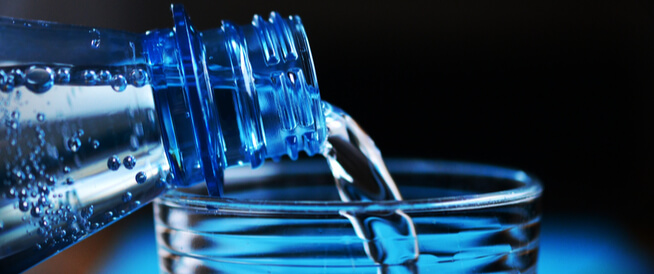Water fasting benefits and side effects
Water fasting is one of the common diet methods around the world, so what are its true benefits? Does he have any damages? Full information can be found in the following article.

In recent years, many fitness enthusiasts around the world have started following diet methods that rely mainly on fasting. There are intermittent fasting, water fasting, and others! Here is the most important information.
Introduction to water fasting
Fasting in general has many health benefits, and this type of diet is inspired by fasting, but with a slight change. Fasting here is about everything except water.
There are several different methods for this fasting, there are those who fast from food, and consume only water for 24 hours, and there are those who fast for a longer period that may reach 72 hours in full. harmful to health.
This method of fasting
There is no specific way to do this fasting, but there are broad lines that may be followed by reducing any potential damage to the groups that can tolerate this type of diet, and these are the most important of them:
- It is usually done in the form of a complete fasting from food with only drinking water for a period ranging between 24-72 hours.
- Usually 2-3 liters of water are drunk daily during the fasting period.
- You should not fast for more than 72 hours continuously; Because this may make the body vulnerable to many risks and health complications.
- If this fast is followed for the first time, the body must be given several days to get used to less food and more water gradually.
- It is preferable to avoid practicing some activities and not to drive vehicles during this fasting period. As it may cause dizziness and lightheadedness.
- After the end of this fasting period, food should be reintroduced to the body only in small quantities and gradually.
- It's best to break this fast with a nutritious juice, or a smoothie made with fresh, nutrient-rich ingredients rather than solid food.
- It is preferable to follow this fast during holidays; Because it will affect practical performance, and activity levels for sure.
- It is preferable to avoid exercising or driving different vehicles during fasting for fear of accidents and fainting.
Benefits of this fasting
The potential benefits of water fasting are as follows:
Contributes to lowering high blood pressure
In general, consuming more water while reducing salt helps reduce high blood pressure, something that fasting provides for the body.
But it is worth noting that the benefits of this fasting in this particular aspect were performed on certain people for a period of fasting that exceeded two weeks and under close medical supervision, so it is not preferable to do this at home.
Stimulates cell autophagy
The process of autophagy of cells is one of the phenomena that makes religious fasting or even the intermittent fasting diet beneficial for the body!
It was found that fasting in general helps to break down and recycle old cells, which may help fight some serious diseases, such as cancer and Alzheimer's.
Improves blood sugar levels
This fasting may help improve the body's ability to respond to the hormones insulin and leptin, which are needed to regulate blood sugar levels, store food, and feel full.
Lose weight
In general, abstaining from calories and reducing them for a period exceeding 24 hours stimulates weight loss, so this fasting actually reduces weight, but this decrease may not be in the weight of body fat, so caution must be exercised.
Other benefits
There are other potential benefits of this fasting, these are the most important:
Improving collagen production in the skin and complexion.
Resistance to various infections in the body.
Fighting free radicals that cause serious diseases, such as: cancer.
Reducing lipid levels in the blood.
Improving metabolic processes.
Side effects of this fasting
These are the potential harms of water fasting:
Increases the risk of refeeding syndrome
After completing this fast, especially for long periods, a serious and fatal condition may arise in the body, refeeding syndrome.
This syndrome usually occurs when eating after abstaining from food completely for relatively long periods, which causes the body to undergo rapid and sudden changes in fluids and electrolytes, changes that can be fatal.
It causes dehydration
Although it may seem strange and illogical, this fasting may cause dehydration, because the body derives approximately 20-30% of its water needs from food, so the body may not get enough water through water only.
Causes healthy weight loss
This fasting may cause the wrong weight loss! It has been found that the body may lose approximately 1 kilogram per day during this fasting, but this weight may be from muscle and stored water and not from fat, so caution must be exercised.
Contributes to lowering orthostatic blood pressure
This health problem is common during this fasting, and orthostatic hypotension occurs when a person tries to stand, which leads to sudden dizziness or even fainting.
Other side effects of this fasting
There are other potential harms, including the following:
- Deficiency and malnutrition.
- Dizziness, fainting and trouble concentrating.
- water intoxication;
- Binge eating and excessive amounts of food after the end of the fast.
Categories that should avoid this fasting
Water fasting may be beneficial for some, and may cause minor harm to others. But these groups in particular should avoid it completely; Because the health consequences can be severe:
- People with type 1 or type 2 diabetes.
- Pregnant and lactating women.
- Children in general.
- the elderly.
- People undergoing blood transfusions.
- Migraine sufferers.
- People with diseases related to appetite and eating disorders.
- People who suffer from excessive thinness.
- heart patients.
- People who take certain medicines.
- Gout patients.

Post a Comment
0 Comments